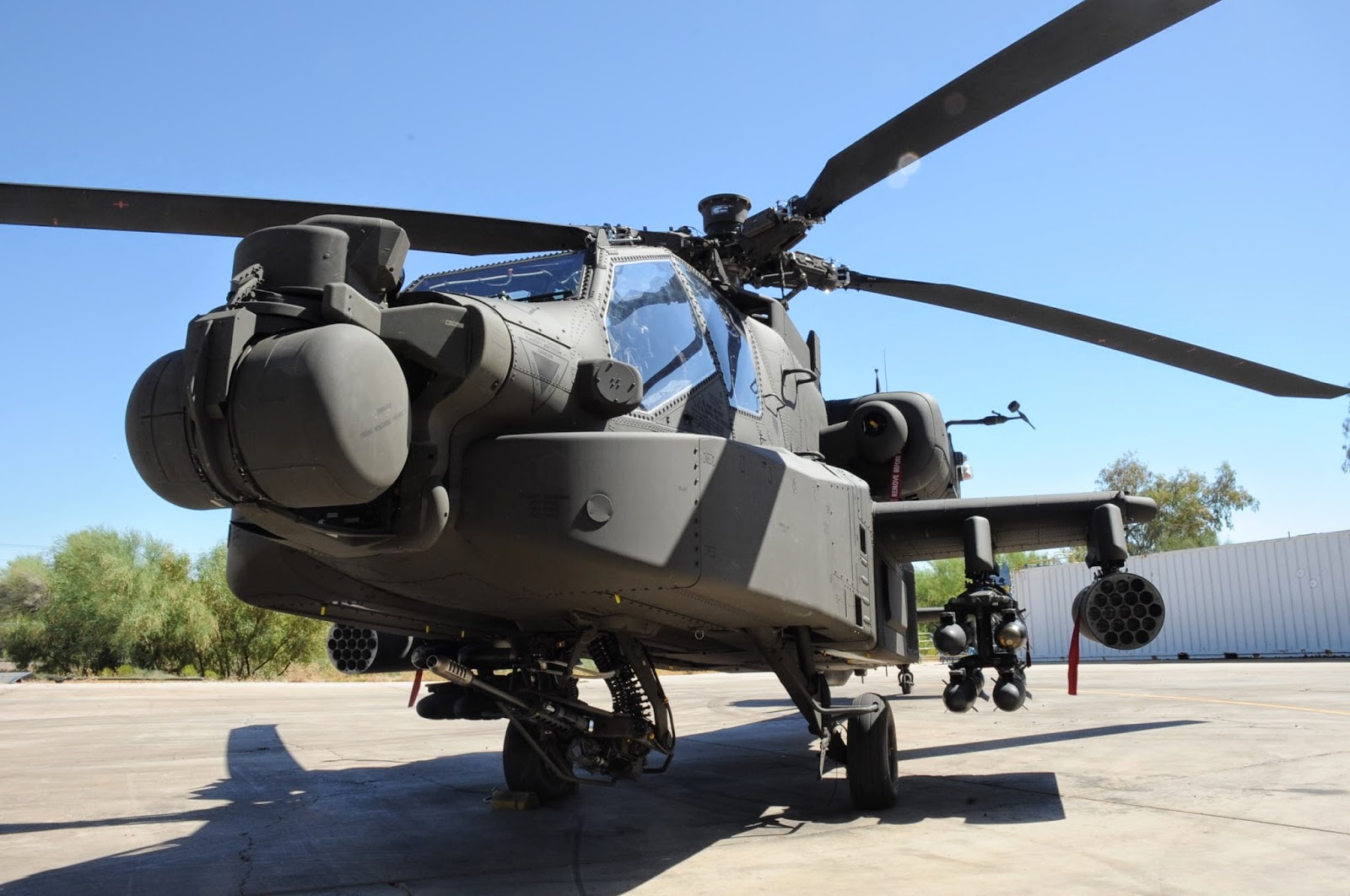Pre to Farnborough Air Show Boeing showed the capability of the AH-64 APACHE and the AH-6 LITTLE BIRD at their production line in Mesa, Arizona/USA.
Last year production of the AH-64D-model stopped, so from then on only E-models are built. 40 E-aircrafts are delivered so far in 2014 (117 E’s since October 2011 – 48 to international customers). In 2013 the 2,000 APACHE was delivered – so many because all the older models are reframed, when they are upgraded.
The US Army 229th Aviation Regiment is using AH-64E in combat in Afghanistan since March. Since then 1,700 flying hours have been flown. In the Pacific region AH-64E are used since some weeks from US Navy ships to test interoperability. The APACHE is used in 14 countries (Egypt, Greece, Israel, Japan, South Korea, Netherlands, UK etc.), Taiwan and Saudi Arabia (Land Forces – National Guard will be next) are the latest with a lot more countries (e.g. India, Indonesia) in a waiting line, according to Colonel Jeff Hager (US Army). Flight evaluation just completed in Qatar and Indonesia (signed LOA for 8 pieces). The AH-64 APACHE features a spectrum of capabilities for attack and reconnaissance missions.
Future of AH-64
Even if the AH-64E is under production the development is still going on. The capability lot Nr. 4 will be tested in August and after successful passing be integrated in the series production. Lot 4 will see new external fuel tanks, Link 16 integration and some other upgrades. The next step will be capability lot 6 (5 does not exist) with testing in 2017. This will be mostly software upgrades and a new mission processor. The UAV controller (APACHE crew can take control of UAV vehicle and sensors) was already integrated and is operational. In Afghanistan the steering of GRAY EAGLE becomes more and more. The E-model is more lethal (30 mm M230 cannon is now more accurate, capacity 1,200 rounds), more powerful (engine GE-701D shifts up from 2,800 to 3,400 shp), faster (up to 163 mph instead of 140 mph with D-model), can fly higher and the Link 16 will be another capability booster. All other services are already using Link 16 and it is the base for the interoperability. Link 16 will allow to pass targets/targeting information between/from AWACS, ships, ground troops or AH-6/AH-64 to each other (target handover). With the higher speed the APACHE can now follow the MedEvac CH-47 CHINOOK, so fare the CHINOOK had to lower the flight speed. So far not in theater is the new day sensor upgrade (except the new laser). The E-model got also a new transmission and composite rotor blades. Other new features: Modernized Pilot Night Vision Sensores (MPNVS), Modernized Target acquisition & Designation System (MTADS – Day/Night sensors & laser). Nearly all E-models are refurbished older models, with a new airframe, a new fuselage, new wiring and new composites blades, but a lot of the parts are reused (12%) or coming from the fleet (engines). Every 2.5 to 3.5 days an AH-64E is leaving the production line. Boeing is working at 12 assembly positions at the same time. Altogether it takes 42 days to assemble an APACHE. According to Boeing a reused AH-64E has only a third of the costs of a totally new one. At the moment most air frames are produced for Saudi Arabia. At the nose they carry slogan “God Bless You” in English and Arabic. So do the F-15 and TYPHOONS of Saudi Arabia. The Netherlands are just getting an AH-64 Block 1 upgrade (to Block 3), the UK is still flying Block 1 machines.
“The AH-64E APACHE is the most advanced attack helicopter today”, said Mike Burke, Director Boeing Defence Attack Helicopters. Colonel John Lynch (US Army) is expecting to stay the AH-64 in the Post-ISAF mission in big numbers.
The US Army is looking at the Future vertical Lift, but between the end of E-production and the start of the Future Vertical Lift will be a gap, so maybe there will be an F-model to fill that. Boeing is planning to use and maintain the AH-64 fleet up to the 2080s – then it will be 100 years flying!
Andte Forkert



No comments:
Post a Comment